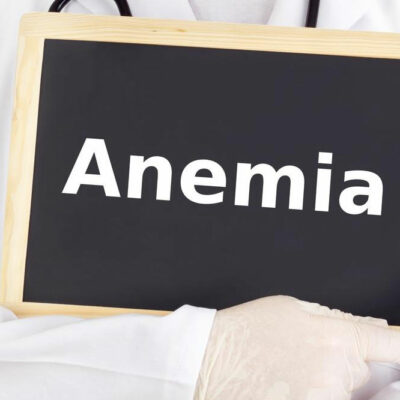
10 Signs Of Low Calcium In The Body
Calcium is an essential bodily mineral that the body utilizes to build strong bones, hair, and teeth. Healthy calcium levels are also required in order for the heart and muscles to function properly, as well as to prevent osteoporosis, a bone disease that causes bones to become brittle and porous. Low calcium, or hypocalcemia (also known as calcium deficiency disease) can be caused by several factors, including:
- Low estrogen (during menopause)
- Taking certain medications (i.e., corticosteroids, chemotherapy drugs, etc.)
- Pancreatitis
- Renal failure
- Low vitamin D (the vitamin essential for absorbing calcium)
Read on for the signs of low calcium or hypocalcemia:
1. Confusion
An unfortunate symptom of low calcium may be confusion. For example, patients with extremely low calcium levels may have trouble remembering their own identity, or things that have happened in the past or present. They may even experience full memory loss.
2. Muscle spasms
The most common sign of hypocalcemia is muscle spasm, or “neuromuscular irritability”, which causes nerves and muscles to spasm or twitch. This is directly related to blood calcium levels, which typically causes muscle cramps and twitching in the legs or arms.
3. Seizures
Hypocalcemia may also cause seizures, or what’s characterized by doctors as “neuronal excitability”, in patients. Seizures may result when extracellular concentration of calcium decreases, causing focal motor seizures.
4. Loss of energy or fatigue
Feeling lethargic or fatigued is often seen in people with hypocalcemia. When calcium levels are unbalanced, certain bodily functions will suffer as well. The muscles won’t function properly contributing to extreme lethargy.
5. Headache or lightheadedness
Usually felt in the head and neck area. There are different types of headaches like cluster, tension and migraine to name a few that can occur with low calcium. This can interfere with one’s life and greatly. Painkillers and lots of rest are the best way to treat this symptom, as well as introducing calcium gradually to top up levels.
6. Muscle weakness
Lack of muscle strength is another symptom of low calcium, which goes hand in hand with the symptom of fatigue. Because calcium levels are so low in patients it may impact balance and cause muscle fatigue.
7. Anger irritability
Altered mood is common to patients suffering from hypocalcemia, in addition to confusion, which may cause anger and fear. Also calcium is known as a calming mineral. Therefore, it’s possible that calcium deficiency will cause patients to become agitated and irritable.
8. Hallucinations
If left untreated over the long term, hypocalcemia can impact the brain and cause psychological effects, such as confusion, memory loss and even hallucinations. These symptoms dissipated once calcium levels are restored.
9. Depression
Akin to hallucinations and fogginess, delirium and depression may also occur with low calcium, as it works to calm the body.
10. Decreased heart rate
Calcium is vital to trigger electrical activity and function of the heart. Therefore, when calcium particles are low, it slows the electrical signal that prompts heart muscle cells to beat, and may slow overall heart rate.


